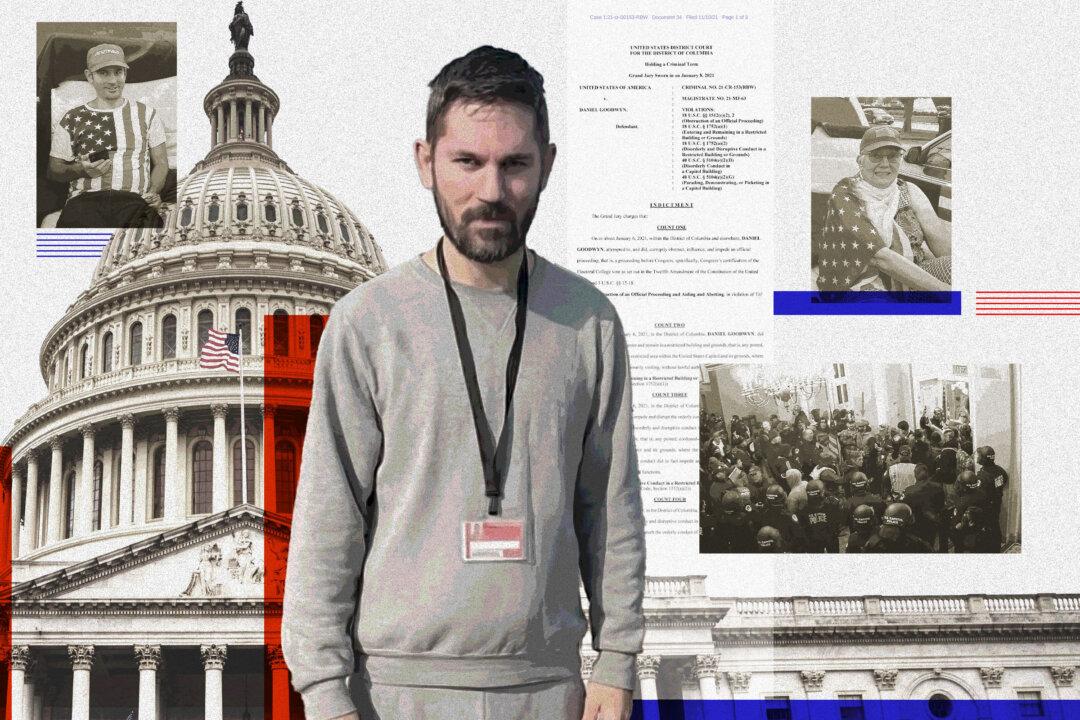Despite being slapped down by the U.S. Court of Appeals for ordering a Jan. 6 probationer’s computer use be monitored for so-called “disinformation,” a senior federal judge in Washington D.C. appears ready to reimpose the restriction on Daniel Goodwyn of San Francisco.
Senior U.S. District Judge Reggie Walton ordered Mr. Goodwyn to “show cause” for why the computer monitoring provision should not be reimposed. Judge Walton set a June 4 hearing date on the issue in Washington.





